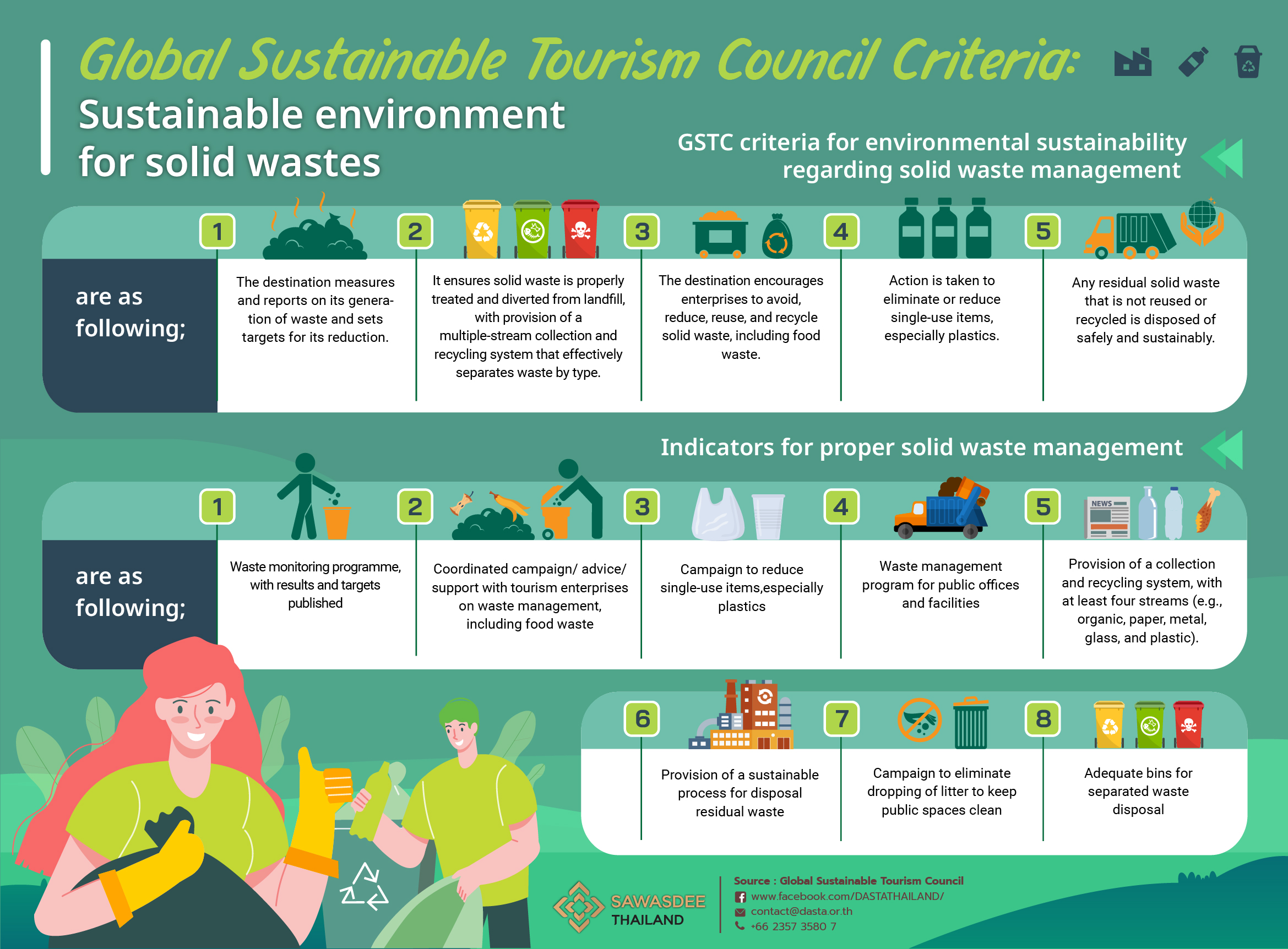The Global Sustainable Tourism Council (GSTC) criteria were created to provide a common understanding of sustainable tourism. The GSTC Destinations Criteria – known informally also as “GSTC-D” – are the minimum that any tourism destination should aspire to reach. They are organized around four main themes: sustainable management, socio-economic impacts, cultural impacts, and environmental impacts. They have applicability to the entire tourism sector.
The GSTC criteria for environmental sustainability concerning solid waste management are as follows:
- The destination measures and reports on its generation of waste and sets targets for its reduction;
- It ensures solid waste is properly treated and diverted from landfill, with provision of a multiple-stream collection and recycling system that effectively separates waste by type;
- The destination encourages enterprises to avoid, reduce, reuse, and recycle solid waste, including food waste;
- Action is taken to eliminate or reduce single-use items, especially plastics;
- Any residual solid waste that is not reused or recycled is disposed of safely and sustainably.
Indicators for solid wastes management are the following:
- Waste monitoring program, with results and targets published;
- Coordinated campaign/ advice/ support with tourism enterprises on waste management, including food wastes;
- Campaign to reduce single-use items, especially plastics;
- Waste management program for public offices and facilities;
- Provision of a collection and recycling, with at least four streams (i.e., organic, paper, metal, glass, and plastic);
- Provision of a sustainable process for disposal of residual waste;
- Campaign to eliminate dropping of litter, including by visitors, and to keep public spaces clean;
- Adequate bins for separating waste disposal.
Quelle: Global Sustainable Tourism Council
Informationen vom: 28. Februar 2023.


